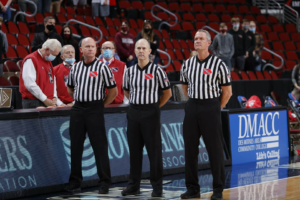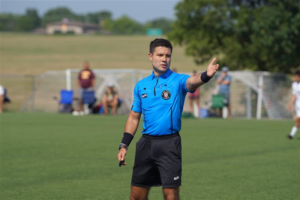
Running a baseball or softball organization means coordinating dozens—sometimes hundreds—of moving pieces. Teams, coaches, fields, equipment, weather delays, scorekeepers… and perhaps the most critical piece of all: your officials. A well-organized umpire program keeps your league running smoothly; a disorganized one can derail an entire season.
Strong officiating doesn’t happen by accident. It requires planning, communication, structure, and the right tools. This guide walks through the essential areas of managing officials effectively—and how ZebraWeb provides the modern infrastructure baseball organizations increasingly rely on.
1. Recruiting and Onboarding Officials the Right Way
Baseball has unique officiating demands. Two-umpire systems, plate vs. field rotation, equipment costs, and tight game intervals all make recruiting strategic. Start by understanding exactly what your program needs:
Key Elements of Effective Recruitment
- Define Role Requirements: Baseball umpires need sport-specific rule knowledge, plate mechanics, and comfort working in hot weather. Clarify must-haves and expectations.
- Reach in the Right Places: Local umpire associations, high-school baseball programs, community colleges, and retired officials are ideal recruiting pools.
- Give Clear Onboarding Steps: Certification level, online rule tests, equipment lists, background checks, and expectations on demeanor and professionalism.
- Assign Early Shadow Opportunities: New umpires build confidence by shadowing experienced crews before taking assignments on their own.
Where ZebraWeb Helps
ZebraWeb allows you to store detailed profiles for each official—certifications, experience level, preferred positions (plate, base), sports, distance limitations, and availability windows—creating a structured onboarding path without endless paperwork.
2. Scheduling Umpires & Balancing Crews
Baseball scheduling is uniquely complex: one field might host back-to-back games, or a Saturday tournament might require dozens of assignments across multiple diamonds.
Best Practices for Baseball Assigning
- Match Skill to Game Level: Assign plate-qualified umpires to higher-level games; newer officials can start on bases or lower divisions.
- Balance Workload: Rotate officials between plate and field positions to prevent burnout.
- Account for Travel Time: Fields may be spread out; don’t assign back-to-back games across town without proper buffer.
- Prepare for Double-Headers: Account for heat, fatigue, and hydration needs when assigning two-game slots.
- Build a Substitution Plan: Weather cancellations, last-minute conflicts, or illness can leave gaps—have a pool of standby umpires.
Where ZebraWeb Helps
- Smart filters let assignors select officials based on skills, experience, distance, and certification.
- Automated conflict detection prevents accidental double-booking.
- Mobile notifications instantly alert officials to new assignments or changes, reducing no-shows.
- Calendar syncing helps officials plan their day clearly around game load and travel time.
3. Communication and Game-Day Management
Clear communication is the foundation of smooth game days. Baseball brings additional complexity: plate gear needs, pre-game meetings, field inspection, lineup exchange, and the possibility of weather delays.
What Strong Communication Looks Like
- Pre-Game Reminders: Date, time, field number, level, crew roles, uniform reminders.
- Immediate Change Alerts: Last-minute field switches, weather delays, time adjustments.
- Clear Chain of Command: Officials should know exactly whom to contact if they’re running late or have an issue.
- Post-Game Check-Ins: A quick survey or message to identify concerns, player issues, or field hazards.
Where ZebraWeb Helps
All communication flows through one unified system. Assignors can send individual or group messages, push alerts to phones, and keep officials updated in real time—no more message chains scattered between SMS, email, and social media.
4. Payment Transparency, Recordkeeping & Retention
Officials consistently name lack of payment clarity as a major frustration. Baseball organizations that get this right retain umpires season after season.
What Officials Expect
- Accurate Game Count: Plate vs. base rates may differ; accurate tracking is crucial.
- Mileage & Travel Support: Some leagues offer gas stipends or travel fees.
- Clear Pay Schedule: Officials need to know when they’ll be paid and how.
- Visible History: Officials should be able to verify every game they’ve worked.
Where ZebraWeb Helps
ZebraWeb keeps a running ledger of every umpire’s assignments, payment status, mileage, and history. Officials see exactly what they’re owed, promoting trust and reducing disputes—one of the most important factors in long-term retention.
5. Evaluations, Development & Feedback Systems
A strong officiating program improves every season. That requires feedback, performance tracking, and development opportunities.
How to Encourage Improvement
- Post-Game Evaluations: Quick reports from assignors, observers, or coaches.
- Mentorship Systems: Pair new umpires with experienced ones for live-game learning.
- Rule Refreshers: Regular clinics, mid-season updates, and case-study discussions.
- Performance Data: Identify who’s ready for higher-level games and who needs more reps.
Where ZebraWeb Helps
Attach feedback directly to an official’s profile, track progression over time, and ensure consistent evaluation standards. This helps organizations grow officials and raise game quality.
6. Scaling Your Officiating Program
As baseball organizations expand—more divisions, new tournaments, added fields—the officiating demands grow.
Challenges That Come With Growth
- Multi-location scheduling
- Overlapping age groups
- Complex conflict management
- Higher volume of replacement needs
- Additional layers of communication
Where ZebraWeb Helps
ZebraWeb is built to scale. Whether you’re running a small community league or multi-weekend travel tournaments, the platform handles large volumes of games, multi-sport configurations, and advanced assigning workflows seamlessly.
Conclusion
Managing umpires in a baseball organization requires strategy, structure, and the right technology. When associations rely on outdated tools, confusion grows, officials quit, and seasons suffer. But when they implement best practices—and use a modern assigning and communication system like ZebraWeb—the difference is immediate.
Officials stay informed. Assignors stay organized. Games start on time. And the entire baseball community experiences a smoother, more professional season.
Strong officiating doesn’t happen by accident—it happens with the right foundation. And the right foundation starts with a system designed for the modern game.












